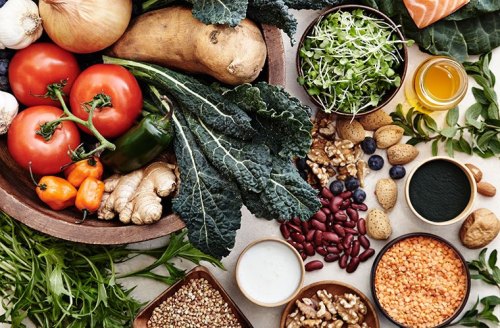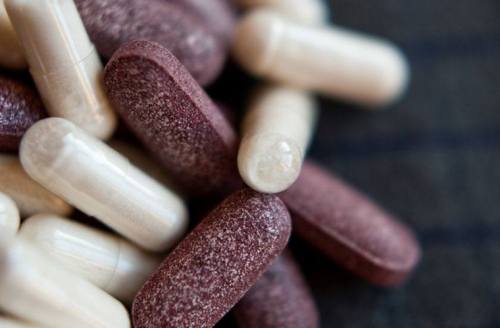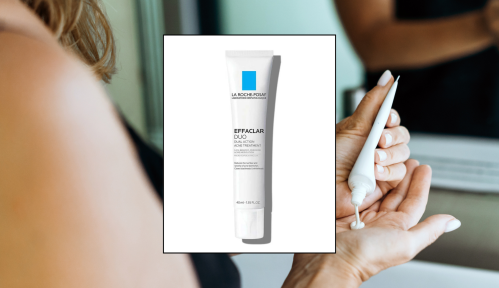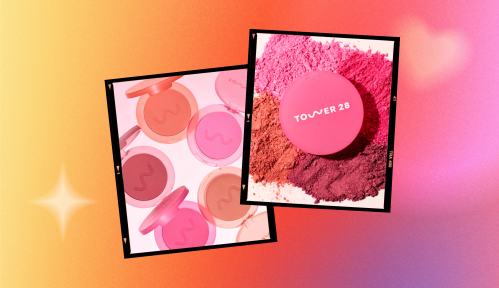When Kim Kardashian wept over her psoriasis diagnosis on Keeping up with the Kardashians, those of you who struggle with the same skin condition—or with eczema—knew the reality TV star’s tears of frustration were well-warranted. These conditions pose a lifelong dermatological challenge, which brings with it discomfort and self-consciousness. In short, the effects are more than just skin deep, they’re emotional as well.
Some background: Psoriasis is an autoimmune disease that results in the overproduction of skin cells, causing plaques to form, typically on elbows, knees and the scalp; however, these can also show up on the palms, torso, and even the face. Alternately, eczema is an inflammatory skin condition, which causes red rash-like bumps that are itchy and may blister or bleed. “Psoriasis and eczema are both immune-related, which is why we often treat them the same way,” explains Doris Day, MD, a dermatologist in New York City.
“Psoriasis and eczema are both immune-related, which is why we often treat them the same way.”
Since many store-bought lotions and creams—including those that claim be hypoallergenic—can exacerbate psoriasis and eczema, natural treatments may be something that many patients are searching for. This is especially true given that both issues are, at their core, the result of inflammation, which can be managed through diet and lifestyle changes.
While it’s important to see a medical doctor if you’re suffering from either issue, there are many holistic treatments that dermatologists might suggest to help lessen inflammation inside and out. “Increased inflammation in the body throws off the body’s ability to regulate the immune system and can therefore lead to flare-ups of these skin conditions,” says Dendy Engelman, MD, a dermatologist in NYC. Below, top docs share holistic treatments.
Keep reading for dermatologist-approved tips.

Diet
Antioxidant-rich fruits and vegetables
Dr. Day suggests adding seasonal, anti-inflammatory fruits and veggies into your diet. Check out the first and second tiers of this antioxidant food pyramid for specific suggestions, but the focus, she says, should be on adding antioxidant superstars such as leafy greens like broccoli, kale, and spinach to every meal.
Omega-rich foods “I recommend omegas, found in olive oil and fatty fish,” adds Dr. Day. She explains that these fatty acids have the ability to boost your immune system and reduce inflammation. Other sources of omega-3s and omega-6s include grass-fed meats, eggs, flaxseed, and chia seeds.
Spices“You can use spices like curcumin [(that’s turmeric!)] and cinnamon,” says Dr. Day. Both are—you guessed it—anti-inflammatory. If you’re not sure how to add more turmeric into your daily diet, here are five genius ways to cook with it. Or try adding it to all your liquids—from a golden latte or these turmeric smoothies. Cinnamon, meanwhile, can simply be sprinkled right into your morning cup of coffee.
Fermented foods “Having an unbalanced gut can contribute to inflammation,” says Dr. Engelman. “I recommend kombucha and other fermented foods to keep inflammation at bay.” Both can offer a healthy source of bacteria-balancing probiotics; here, 3 inventive ways to cook with the latter.
An elimination diet
Google ‘elimination diet‘ along with either ‘eczema’ or ‘psoriasis’ and you’ll see countless references that recommend giving it a try. That’s because if you suffer from food sensitivities (like gluten, eggs, peanuts or dairy), some people have seen improvements in their condition by eliminating triggers from their diet. Typically doctors, will recommend that you remove foods from your diet one at a time and then reintroduce them back into your diet one at a time in order to identify the dietary cause of your ailment. But Shasa Hu, MD, a Miami dermatologist notes that this tactic tends to be more beneficial for treating psoriasis rather than eczema. Plus, it’s not a quick fix. “I tell my patients that an elimination diet is a lifestyle, not a short-term cure,” she says.

Supplements
Collagen “Inflammation breaks down collagen and hyaluronic acid, so a supplement with collagen could help to rebuild damaged cells and support the skin’s structure,” says Dr. Engelman. When it comes to oral supplements such as Reserveage Collagen Replenish Powder, she says that “hydrolyzed collagen is easiest to digest because it is broken down into the smallest forms of peptides and amino acids.”
ProbioticsIf Kombucha isn’t your cup of tea, you can pop probiotics, too. “Studies have shown that by restoring the body’s healthy, good microbiome, and therefore that of the skin, people suffering from eczema can build more resistance to bacterial infection and flares of their eczema,” Dr Hu says.
Niacinamide“This is an anti-inflammatory supplement in the vitamin B family,” says Dr. Day, who recommends 500mg twice a day. “It works by replenishing pathways in cells to help them regenerate and prevent and undo damage.”

Topical Treatments
HoneyHoney is not only a known as a powerful humectant (it attracts water to the skin), it also has skin-soothing benefits. “Honey is one of the best ingredients to apply to a particular area that’s itchy or irritated,” says Dr. Day, who recommends making a DIY sheet mask by mixing a touch of olive oil and honey, applying it to your skin then placing a cheese cloth or thin piece of cotton on top to help it absorb better (and prevent dripping!). “Let it sit there for an hour or so on any spots that are flaring up and then rinse it off,” she says. Next, make sure you apply a cream that moisturizer and protects skin’s outer barrier such as Skin Fix Eczema Soothing Skin Cream.
Coconut Oil and Safflower Oil“Something as simple as proper hydration has a big impact on protecting against psoriasis and eczema flares,” says Dr. Day, who suggests applying coconut or safflower oil-based products. “Coconut oil is good, as long as you’re not allergic to it, but don’t put it on the face if you’re acne prone.” The reason they work? “Oil-based products are a great way to keep moisture in the skin and create a barrier,” Dr. Engelman says. But that doesn’t mean that oils, on their own replace moisture, Dr. Hu adds, they simply keep water from leaving skin.
Aloe VeraThis tried-and-true natural sun burn soother can help calm psoriasis-prone skin, too. “I love aloe vera because it has great anti-inflammatory, antioxidant and also anesthetic properties so it helps with any itch and burn, too,” says Dr. Day. However, she cautions that if you have eczema, you might have an increased risk of an irritated reaction. “Any time you have breaks in the skin you are more prone to irritation,” she explains.

Lifestyle
Healthy Body Mass Index “Data has shown that weight loss can dramatically improve psoriasis,” says Dr. Hu. “Therefore, a healthy and active lifestyle combined with safe reduction in BMI back to normal range can minimize the need for prescription medication when people suffer from psoriasis.”
SleepThere’s a reason they call it beauty sleep. It’s when the skin goes into repair mode to reverse the damage it faces during the day the likes of pollution, UV light and stress. “You heal when you sleep,” says Dr. Day. Plus, getting plenty of sleep regularly has been shown to keep cortisol (the stress hormone) under control, which in turn, can lessen inflammation. Not only should you aim to get around 8-hours a night (and aim to get into bed at the same time ever night), you also want to stick to a relaxing pre-bed ritual (like zen-inducing essential oils) to help get more quality sleep, too.
Suffering from psoriasis? Here’s why your skin always breaks out in the same spots. To prevent further flare ups, try these anti-inflammatory wellness drinks.
Sign Up for Our Daily Newsletter
Get all the latest in wellness, trends, food, fitness, beauty, and more delivered right to your inbox.
Got it, you've been added to our email list.











